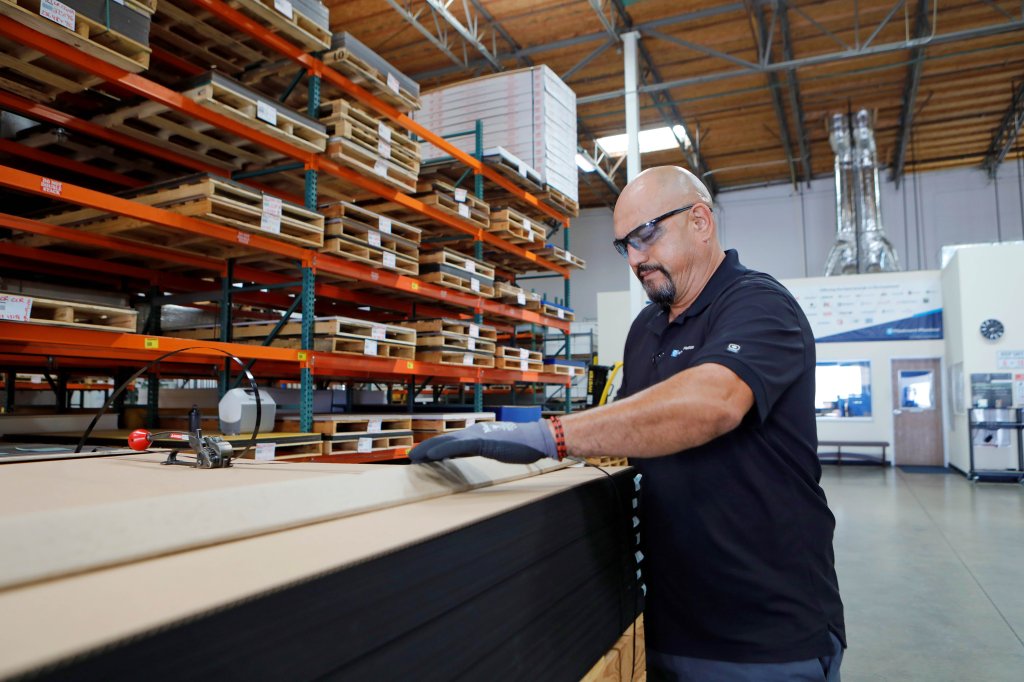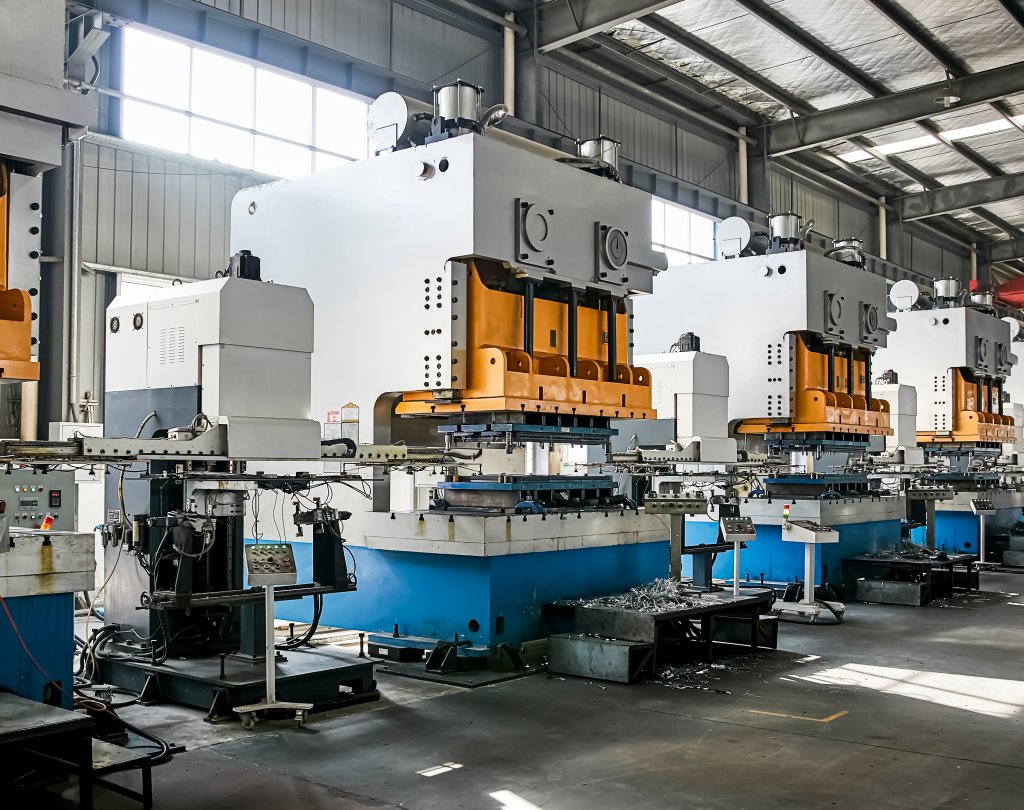Redefining Machine Shop Essentials
There's a common misconception that machine shops are a place of metalwork. While a lot of this work takes place in a machine shop, plastic is found across supporting tools, in use with CNC machines, and to help meet the demands of high-speed production.
Below, you'll learn about the types of plastic found in a machine shop, how that plastic is used, and how you can pick the right plastic for your shop.


An Expert is just around the corner.
With over 100 years of combined product knowledge and industry experience, we are confident our plastics experts can help you find a solution for your application.
The Four Common Plastics in Machine Shops
There are four common plastics you can find in most machine shops. They are used both to support machine operations and produce final products.
ABS (Acrylonitrile Butadiene Styrene): A cheap, tough, rigid, impact-resistant compound used in a wide array of materials that include sheets, plates, and rods. ABS is used in the automotive industry and across many supporting devices. It comes in multiple grades that vary in machining quality and temperature resistance.
Nylon: An engineering plastic ideal for use in various machine parts. It comes in two forms: extruded and cast nylon. The extruded form is lightweight and incredibly commonly found within machine parts. The cast form is resistant to impact and wear, making it a robust alternative to metal and rubber in machine parts.
Polycarbonate: Another tough plastic material that comes in sheet forms, film forms, and bullet-resistant material. The material is often found in applications that require flexibility. It also works as a great insulator.
PVC (Polyvinyl Chloride): A well-known material commonly found in tubing. It's known for its great impact and chemical resistance. Its type one form is more common, but you can find the type two form more often in environments that require chemical resistance.
Six Less Common Plastics for Machine Shops
Despite the top four being incredibly common, you'll find additional plastics for more specialized uses. Below, we'll go into six plastics you might find useful in your machine shop.
Acrylic: Known for its clarity, you'll find acrylic in many safety and security applications. It's half the weight of glass and incredibly lightweight.
Acetal: Also referred to as POM, acetal is an easy-to-machine plastic known for its usefulness in manufacturing. It's also chemically resistant.
PTFE (Polytetrafluoroethylene): Better known as Teflon® (a registered trademark of DuPont), PTFE has high chemical resistance, excellent stability in high temperatures, and great electrical properties.
PEEK (Polyetheretherketone): A high-performance engineering plastic suitable for average continuous use at 480°F. PEEK is an excellent choice in harsh environments that other plastics can't handle.
PET (Polyethylene terephthalate): A clear, strong, lightweight plastic known to be recyclable. Because of this, it's often used to contain beverages.
UHMW (Ultra high molecular weight polyethylene): A highly durable thermoplastic known for its impact and chemical resistance. UHMW-PE is produced in sheets, tubes, and rods in a wide range of sizes and applications.
Many plastics under this category are meant for incredibly high durability needs or specialized shops.
Applications and Uses of Plastics in Machine Shops
Now that we know a bit more about the different types of plastic you might find in a machine shop let's dig into their uses. Below, you'll see another list of common services for plastics in machine shops.
Bearings and bushings: Nylon is an excellent material used in bearings and bushings. You might also find acetal combined with nylon, typically reserved for shops with lower speeds or lighter duty.
Star wheels: Like bearings and bushings, acetal and nylon are found in star wheels. However, you might also find UHMW, known for excellent durability. This is due to their durability and resistance against oils and greases.
Sprockets: As an alternative to steel, you'll often find combinations of acetal and nylon. Sometimes the nylon is glass injected to increase the plastic's rigidness.
Slide pads: UHMW and nylon are two plastics in slide pads. Regardless, you'll need something wear-resistant, like the Ertalyte ® PET-P, which you can find in wind turbines to limit wear and support break torque.
Valve components: Covering many industries, valve components can be found in mining, oil and gas, and food manufacturing. Common components include PVC, PEEK, and other high-performance materials.
Wheels: Machine shops that require wheels often need them to be durable and fight against oil and grease. Because of this, you'll find nylon, UHMW, and acetal in these plastic components.
Rollers: Rollers can be made of polycarbonate, acetal, and nylon, depending on the shop's needs.
Pulleys: As an alternative to steel or iron, plastic pulleys must be durable and sturdy. You can find various high-performance plastics here; sometimes, they're made of glass-infused nylon.
Manifolds: To develop manifolds, acetal, acrylic, and other plastic materials can be found. However, some machine shops use more high-performance plastics to get the job done.
Gears: Plastic gears can be made using nylon and polycarbonate materials, alongside a wide range of plastics, depending on the need of the shop. These gears are typically quieter than their metal counterparts.
Electrical insulation: Given our use of modern technology, electrical insulation is where you will find most of the plastic used in machine shops. Materials like acrylic, polycarbonate, and ABS are all excellent insulators.
Tapes: Specialist tapes are across bonding applications, often replacing rivets and other permanent fasteners.
Tips for Choosing the Right Plastic for Your Machine Shop
Plastic is usable across many potential applications, often replacing metal as a higher-quality counterpart. But how do you pick the right plastic for your machine shop? Here are some tips below:
Mechanical properties: Ask yourself how much impact resistance or durability you need. You'll better understand those properties by understanding the strain your machine puts on the parts you need to replace.
Thermal resistance: Hot environments (or machines) constantly pressure your plastics and metals. Certain plastics are more heat-resistant than others, so consider the maximum temperature of your machine when shopping.
Chemical resistance: Machine shops are full of chemicals needed to do the job. Knowing the substances you use will let you know whether you need plastics that resist more corrosive environments.
Cost-effectiveness: Metal is expensive, but you still need to consider your budget if you plan on replacing it with inexpensive plastic components. Don't buy too much plastic for the job you need to do.
Environmental considerations: Piedmont Plastics has a recycling program, which you can see in action with our reprocessed UHMW made of recycled material. Consider how your plastic purchase might contribute to the environment.
Have Questions? Let Us Know!
With so much information, choosing between plastics can feel overwhelming. Our team of plastic experts is at your disposal, so contact us today to see how we can help you!
Let's Get Started

